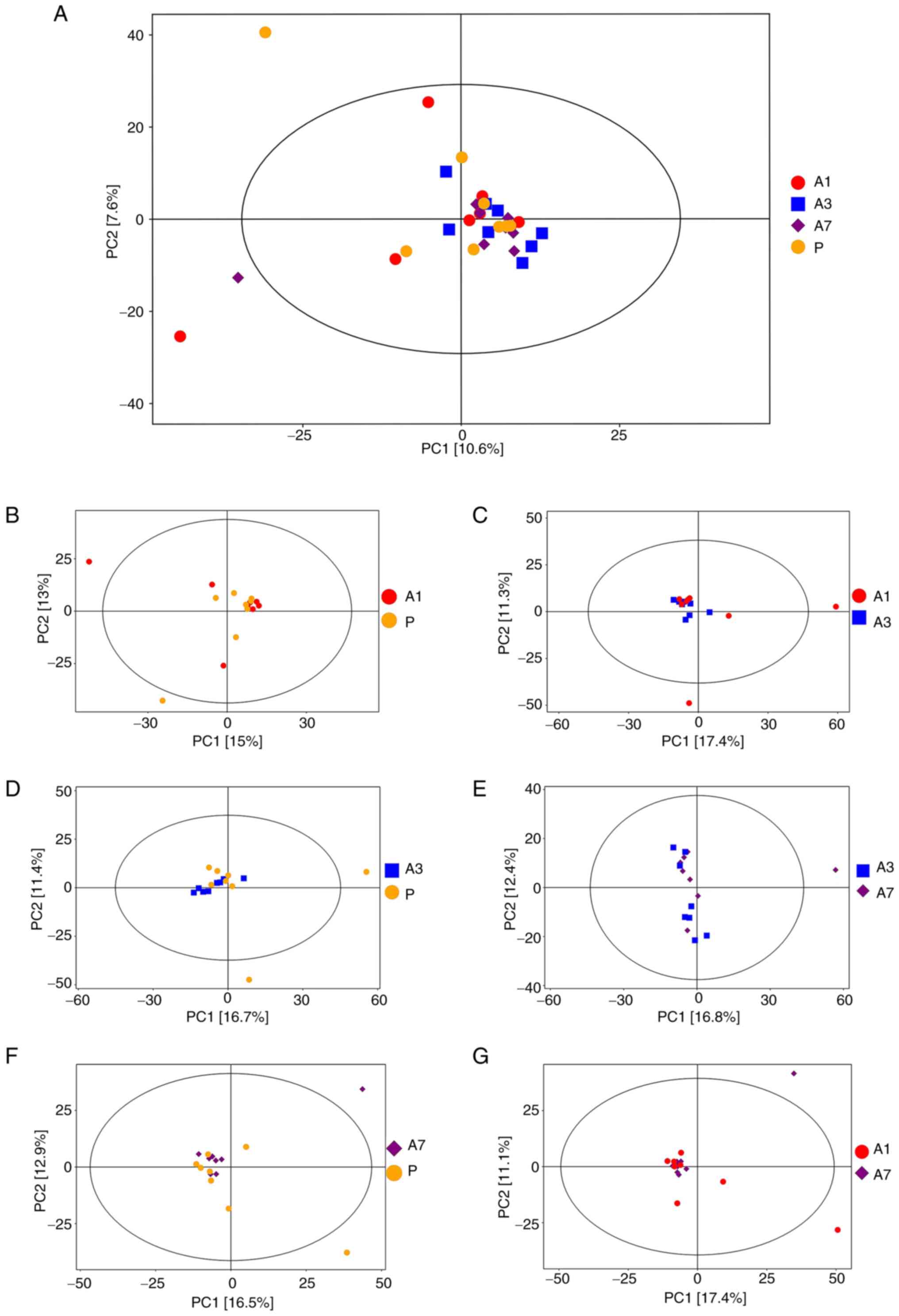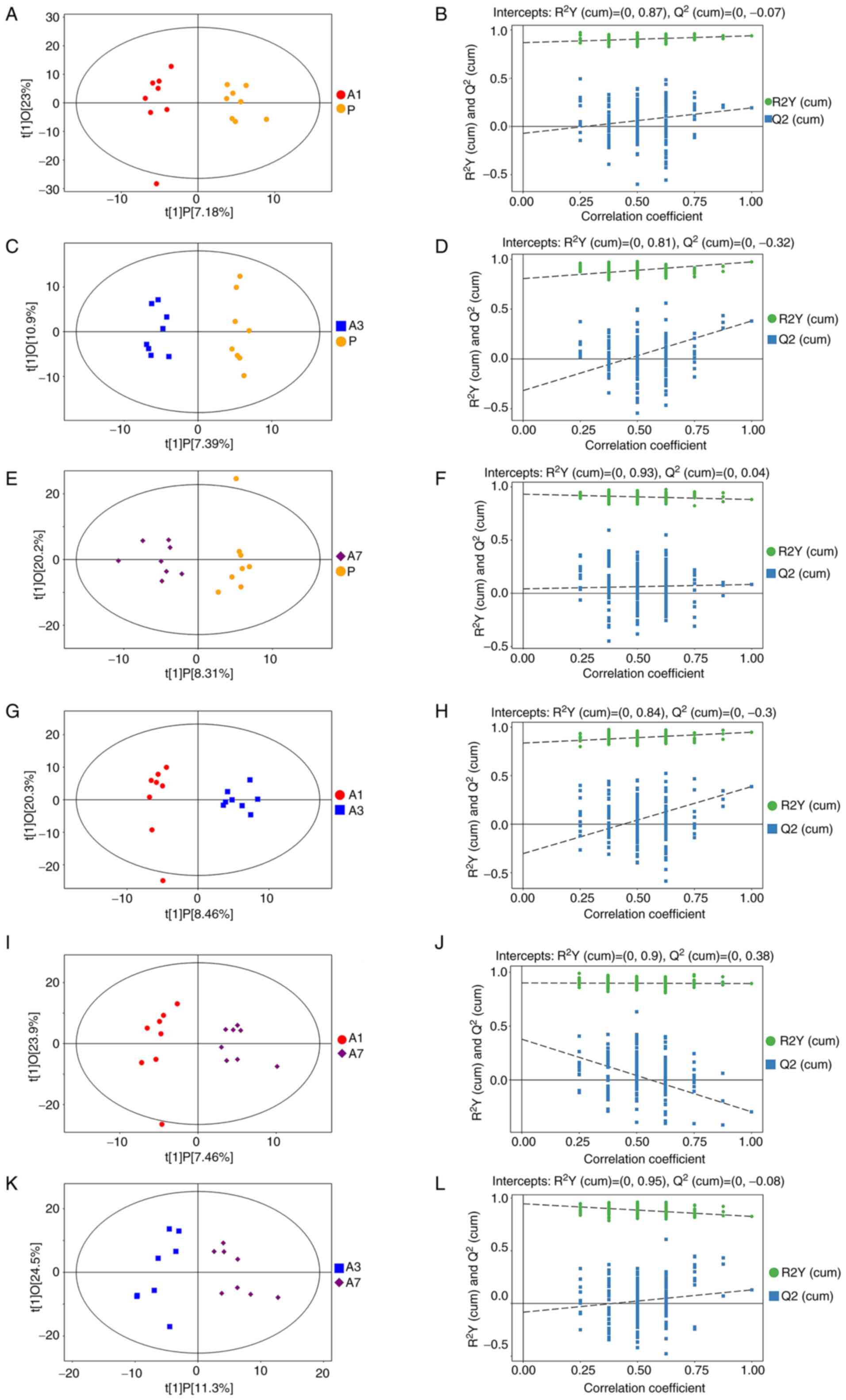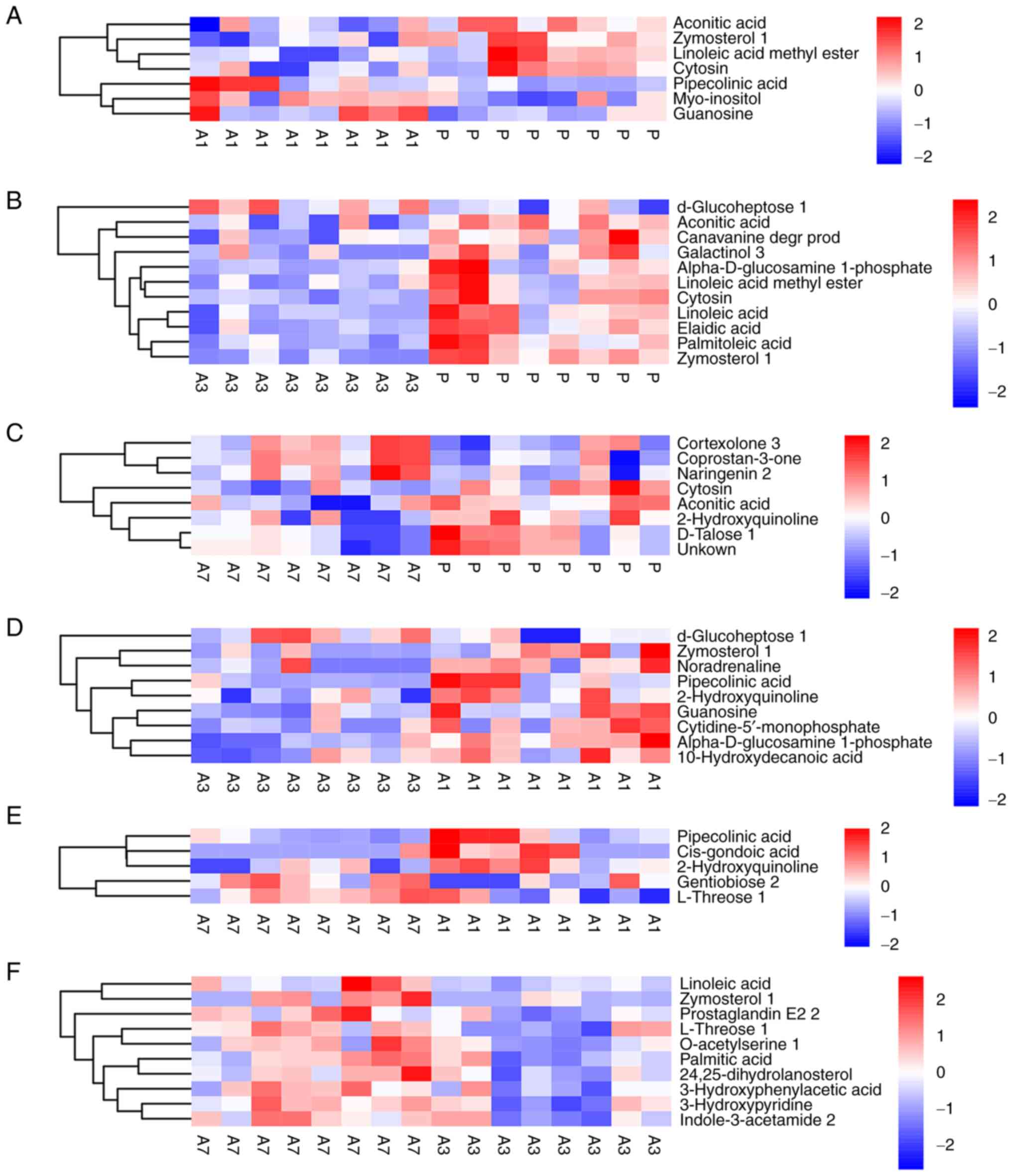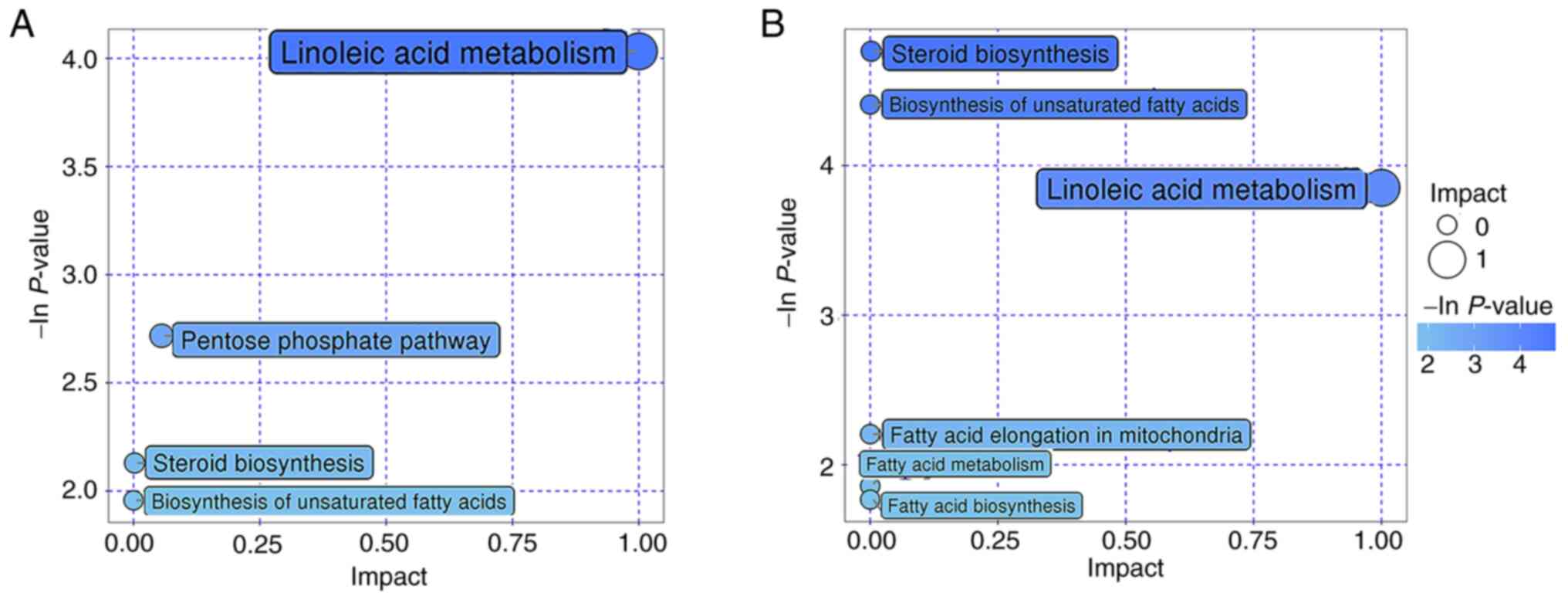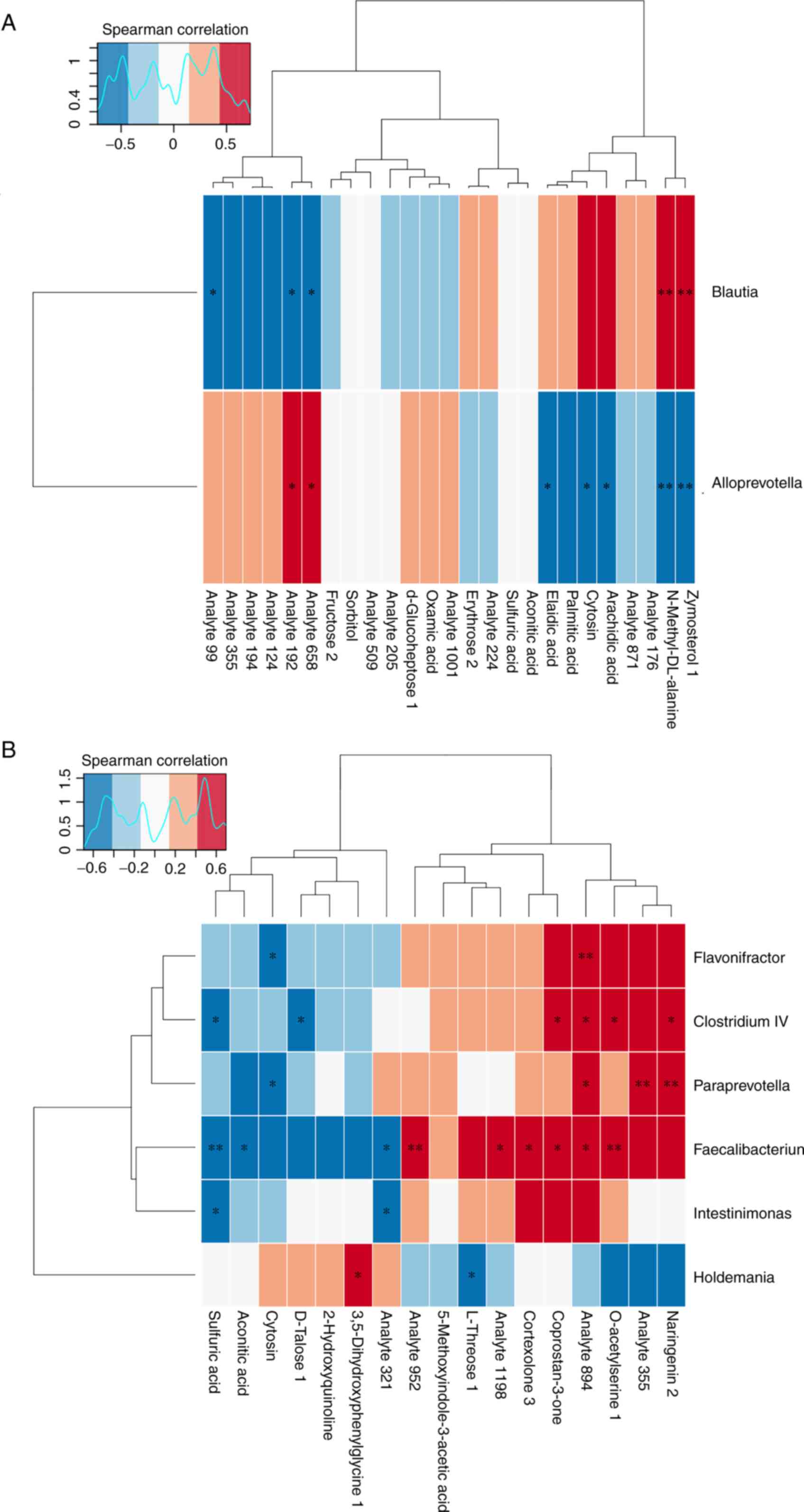|
1
|
Budic I, Jevtovic Stoimenov T, Pavlovic D,
Marjanovic V, Djordjevic I, Stevic M and Simic D: Clinical
importance of potential genetic determinants affecting propofol
pharmacokinetics and pharmacodynamics. Front Med (Lausanne).
9(809393)2022.PubMed/NCBI View Article : Google Scholar
|
|
2
|
Koriyama H, Duff JP, Guerra GG and Chan
AW: Sedation Withdrawal and Analgesia Team. Is propofol a friend or
a foe of the pediatric intensivist? Description of propofol use in
a PICU*. Pediatr Crit Care Med. 15:e66–e71. 2014.PubMed/NCBI View Article : Google Scholar
|
|
3
|
Dinis-Oliveira RJ: Metabolic profiles of
propofol and fospropofol: Clinical and forensic interpretative
aspects. Biomed Res Int. 2018(6852857)2018.PubMed/NCBI View Article : Google Scholar
|
|
4
|
Asghar MU, Cheema HA, Tanveer K and
Leinwand J: Propofol infusion and acute pancreatitis: A review. Am
J Ther. 27:e371–e374. 2020.PubMed/NCBI View Article : Google Scholar
|
|
5
|
Walsh CT: Propofol: Milk of Amnesia. Cell.
175:10–13. 2018.PubMed/NCBI View Article : Google Scholar
|
|
6
|
Sanada S, Suzuki T, Nagata A, Hashidume T,
Yoshikawa Y and Miyoshi N: Intestinal microbial metabolite
stercobilin involvement in the chronic inflammation of ob/ob mice.
Sci Rep. 10(6479)2020.PubMed/NCBI View Article : Google Scholar
|
|
7
|
Wu X, Wu Y, He L, Wu L, Wang X and Liu Z:
Effects of the intestinal microbial metabolite butyrate on the
development of colorectal cancer. J Cancer. 9:2510–2517.
2018.PubMed/NCBI View Article : Google Scholar
|
|
8
|
Xing PY, Pettersson S and Kundu P:
Microbial metabolites and intestinal stem cells tune intestinal
homeostasis. Proteomics. 20(e1800419)2020.PubMed/NCBI View Article : Google Scholar
|
|
9
|
Lin D, Hu B, Li P, Zhao Y, Xu Y and Wu D:
Roles of the intestinal microbiota and microbial metabolites in
acute GVHD. Exp Hematol Oncol. 10(49)2021.PubMed/NCBI View Article : Google Scholar
|
|
10
|
Guo N, Zhang Z, Han C, Chen L, Zheng X, Yu
K, Zhang Z and Wang C: Effects of continuous intravenous infusion
with propofol on intestinal flora in rats. Biomed Pharmacother.
134(111080)2021.PubMed/NCBI View Article : Google Scholar
|
|
11
|
Shirasaka T, Yonaha T, Onizuka S and
Tsuneyoshi I: Effects of orexin-A on propofol anesthesia in rats. J
Anesth. 25:65–71. 2011.PubMed/NCBI View Article : Google Scholar
|
|
12
|
Wang Y, Yu T, Yuan C, Yuan J, Luo Z, Pan
Y, Zhang Y, Zhang Y and Yu B: Effects of propofol on the dopamine,
metabolites and GABAA receptors in media prefrontal cortex in
freely moving rats. Am J Transl Res. 8:2301–2308. 2016.PubMed/NCBI
|
|
13
|
Liu H, Yin X, Li J, Cao Y, Wang Y, Mu W,
Zhuo Z, Chen L, Zhang Z, Qu X, et al: Preoperative intestinal
microbiome and metabolome in elderly patients with delayed
neurocognitive recovery. Anaesth Crit Care Pain Med.
41(101140)2022.PubMed/NCBI View Article : Google Scholar
|
|
14
|
Sahinovic MM, Struys MMRF and Absalom AR:
Clinical pharmacokinetics and pharmacodynamics of propofol. Clin
Pharmacokinet. 57:1539–1558. 2018.PubMed/NCBI View Article : Google Scholar
|
|
15
|
Kam PC and Cardone D: Propofol infusion
syndrome. Anaesthesia. 62:690–701. 2007.PubMed/NCBI View Article : Google Scholar
|
|
16
|
Xu D, Yang W and Zhao G: Effect of
propofol and inhalation anesthesia on postoperative cognitive
dysfunction in the elderly: A meta-analysis. Nan Fang Yi Ke Da Xue
Xue Bao. 32:1623–1627. 2012.PubMed/NCBI(In Chinese).
|
|
17
|
Nummela AJ, Laaksonen LT, Laitio TT,
Kallionpaa RE, Langsjo JW, Scheinin JM, Vahlberg TJ, Koskela HT,
Aittomaki V, Valli KJ, et al: Effects of dexmedetomidine, propofol,
sevoflurane and S-ketamine on the human metabolome: A randomised
trial using nuclear magnetic resonance spectroscopy. Eur J
Anaesthesiol. 39:521–532. 2022.PubMed/NCBI View Article : Google Scholar
|
|
18
|
Xiong X, Liu D, Wang Y, Zeng T and Peng Y:
Urinary 3-(3-Hydroxyphenyl)-3-hydroxypropionic Acid,
3-Hydroxyphenylacetic Acid, and 3-Hydroxyhippuric acid are elevated
in children with autism spectrum disorders. Biomed Res Int.
2016(9485412)2016.PubMed/NCBI View Article : Google Scholar
|
|
19
|
Finegold SM, Molitoris D, Song Y, Liu C,
Vaisanen ML, Bolte E, McTeague M, Sandler R, Wexler H, Marlowe EM,
et al: Gastrointestinal microflora studies in late-onset autism.
Clin Infect Dis. 35 (Suppl 1):S6–S16. 2002.PubMed/NCBI View
Article : Google Scholar
|
|
20
|
Carta G, Murru E, Banni S and Manca C:
Palmitic Acid: Physiological role, metabolism and nutritional
implications. Front Physiol. 8(902)2017.PubMed/NCBI View Article : Google Scholar
|
|
21
|
Nicholas DA, Zhang K, Hung C, Glasgow S,
Aruni AW, Unternaehrer J, Payne KJ, Langridge WHR and De Leon M:
Palmitic acid is a toll-like receptor 4 ligand that induces human
dendritic cell secretion of IL-1beta. PLoS One.
12(e0176793)2017.PubMed/NCBI View Article : Google Scholar
|
|
22
|
Tran TT, Postal BG, Demignot S, Ribeiro A,
Osinski C, Pais de Barros JP, Blachnio-Zabielska A, Leturque A,
Rousset M, Ferre P, et al: Short term palmitate supply impairs
intestinal insulin signaling via ceramide production. J Biol Chem.
291:16328–16338. 2016.PubMed/NCBI View Article : Google Scholar
|
|
23
|
Chen J, Lv YN, Li XB, Xiong JJ, Liang HT,
Xie L, Wan CY, Chen YQ, Wang HS, Liu P and Zheng HQ: Urinary
metabolite signatures for predicting elderly stroke survivors with
depression. Neuropsychiatr Dis Treat. 17:925–933. 2021.PubMed/NCBI View Article : Google Scholar
|
|
24
|
Ouyang Y, Qiu G, Zhao X, Su B, Feng D, Lv
W, Xuan Q, Wang L, Yu D, Wang Q, et al: Metabolome-Genome-Wide
association study (mGWAS) reveals novel metabolites associated with
future type 2 diabetes risk and susceptibility loci in a
case-control study in a Chinese prospective cohort. Glob Chall.
5(2000088)2021.PubMed/NCBI View Article : Google Scholar
|
|
25
|
Ou Y, Chen S, Ren F, Zhang M, Ge S, Guo H,
Zhang H and Zhao L: Lactobacillus casei strain shirota alleviates
constipation in adults by increasing the pipecolinic acid level in
the Gut. Front Microbiol. 10(324)2019.PubMed/NCBI View Article : Google Scholar
|
|
26
|
Takiguchi A, Yoshioka I, Oda Y, Ishii Y
and Kirimura K: Constitutive production of aconitate isomerase by
Pseudomonas sp. WU-0701 in relation to trans-aconitic acid
assimilation. J Biosci Bioeng. 131:47–52. 2021.PubMed/NCBI View Article : Google Scholar
|
|
27
|
Bruni GO and Klasson KT: Aconitic acid
recovery from renewable feedstock and review of chemical and
biological applications. Foods. 11(573)2022.PubMed/NCBI View Article : Google Scholar
|
|
28
|
Kwan B, Fuhrer T, Zhang J, Darshi M, Van
Espen B, Montemayor D, de Boer IH, Dobre M, Hsu CY, Kelly TN, et
al: Metabolomic markers of kidney function decline in patients with
diabetes: Evidence from the chronic renal insufficiency cohort
(CRIC) study. Am J Kidney Dis. 76:511–520. 2020.PubMed/NCBI View Article : Google Scholar
|
|
29
|
Chen L, Wang S, Zhang Y, Li Y, Zhang X, Ma
J, Zou X, Yao T, Li S, Chen J, et al: Multi-omics reveals specific
host metabolism-microbiome associations in intracerebral
hemorrhage. Front Cell Infect Microbiol. 12(999627)2022.PubMed/NCBI View Article : Google Scholar
|
|
30
|
Luo S, Zhao Y, Zhu S, Liu L, Cheng K, Ye
B, Han Y, Fan J and Xia M: Flavonifractor plautii protects against
elevated arterial stiffness. Circ Res. 132:167–181. 2023.PubMed/NCBI View Article : Google Scholar
|
|
31
|
Whelan J and Fritsche K: Linoleic acid.
Adv Nutr. 4:311–312. 2013.PubMed/NCBI View Article : Google Scholar
|
|
32
|
Choque B, Catheline D, Rioux V and Legrand
P: Linoleic acid: Between doubts and certainties. Biochimie.
96:14–21. 2014.PubMed/NCBI View Article : Google Scholar
|
|
33
|
Fritsche KL: Too much linoleic acid
promotes inflammation-doesn't it? Prostaglandins Leukot Essent
Fatty Acids. 79:173–175. 2008.PubMed/NCBI View Article : Google Scholar
|
|
34
|
Miyamoto J, Mizukure T, Park SB, Kishino
S, Kimura I, Hirano K, Bergamo P, Rossi M, Suzuki T, Arita M, et
al: A gut microbial metabolite of linoleic acid,
10-hydroxy-cis-12-octadecenoic acid, ameliorates intestinal
epithelial barrier impairment partially via GPR40-MEK-ERK pathway.
J Biol Chem. 290:2902–2918. 2015.PubMed/NCBI View Article : Google Scholar
|
|
35
|
Khan AA, Alam M, Tufail S, Mustafa J and
Owais M: Synthesis and characterization of novel PUFA esters
exhibiting potential anticancer activities: An in vitro study. Eur
J Med Chem. 46:4878–4886. 2011.PubMed/NCBI View Article : Google Scholar
|
|
36
|
Han C, Zhang Z, Guo N, Li X, Yang M, Peng
Y, Ma X, Yu K and Wang C: Effects of sevoflurane inhalation
anesthesia on the intestinal microbiome in mice. Front Cell Infect
Microbiol. 11(633527)2021.PubMed/NCBI View Article : Google Scholar
|
|
37
|
Tripathi A, Melnik AV, Xue J, Poulsen O,
Meehan MJ, Humphrey G, Jiang L, Ackermann G, McDonald D, Zhou D, et
al: Intermittent hypoxia and hypercapnia, a hallmark of obstructive
sleep apnea, alters the gut microbiome and metabolome. mSystems.
3:e00020–18. 2018.PubMed/NCBI View Article : Google Scholar
|
|
38
|
Pettersen VK, Antunes LCM, Dufour A and
Arrieta MC: Inferring early-life host and microbiome functions by
mass spectrometry-based metaproteomics and metabolomics. Comput
Struct Biotechnol J. 20:274–286. 2022.PubMed/NCBI View Article : Google Scholar
|















